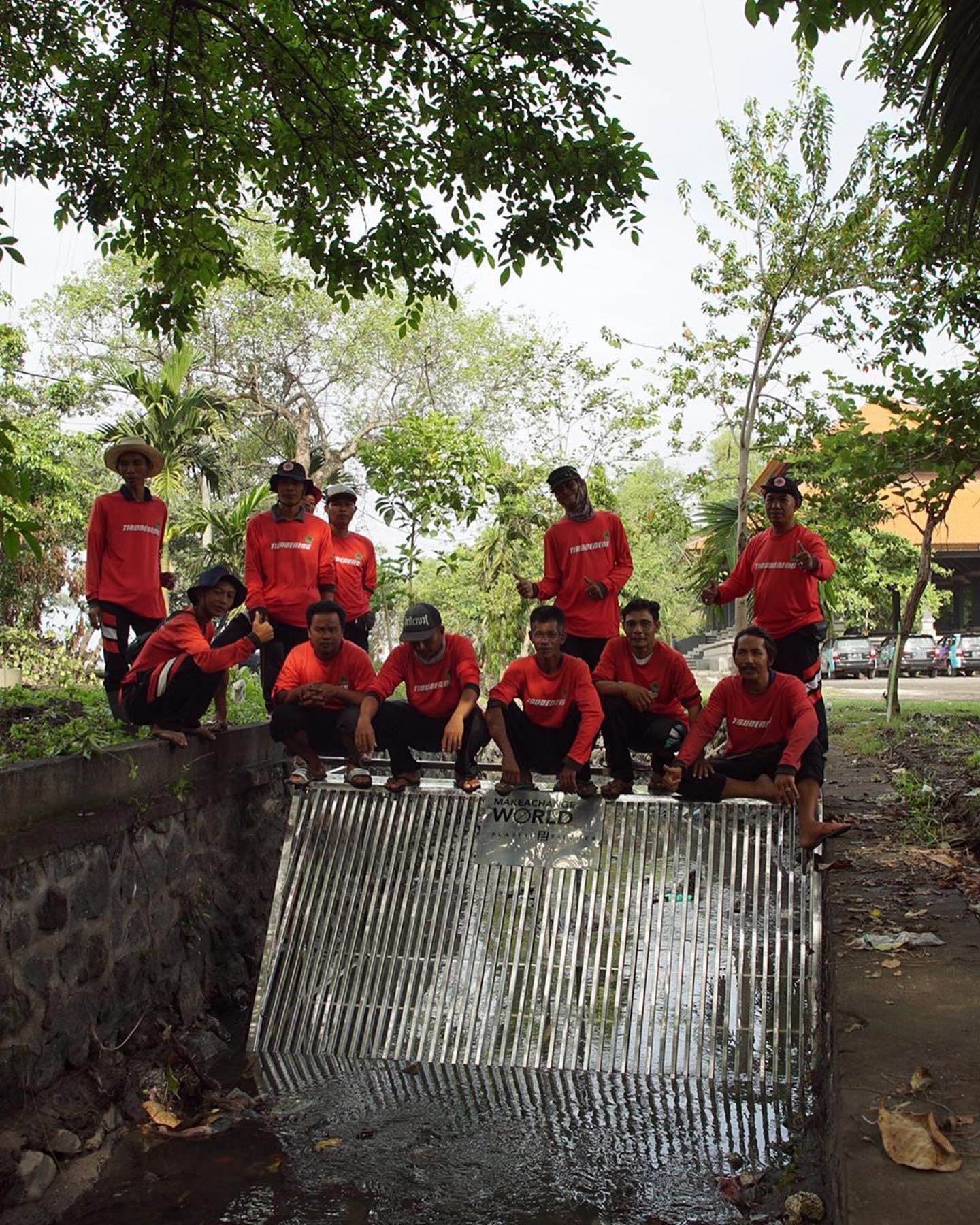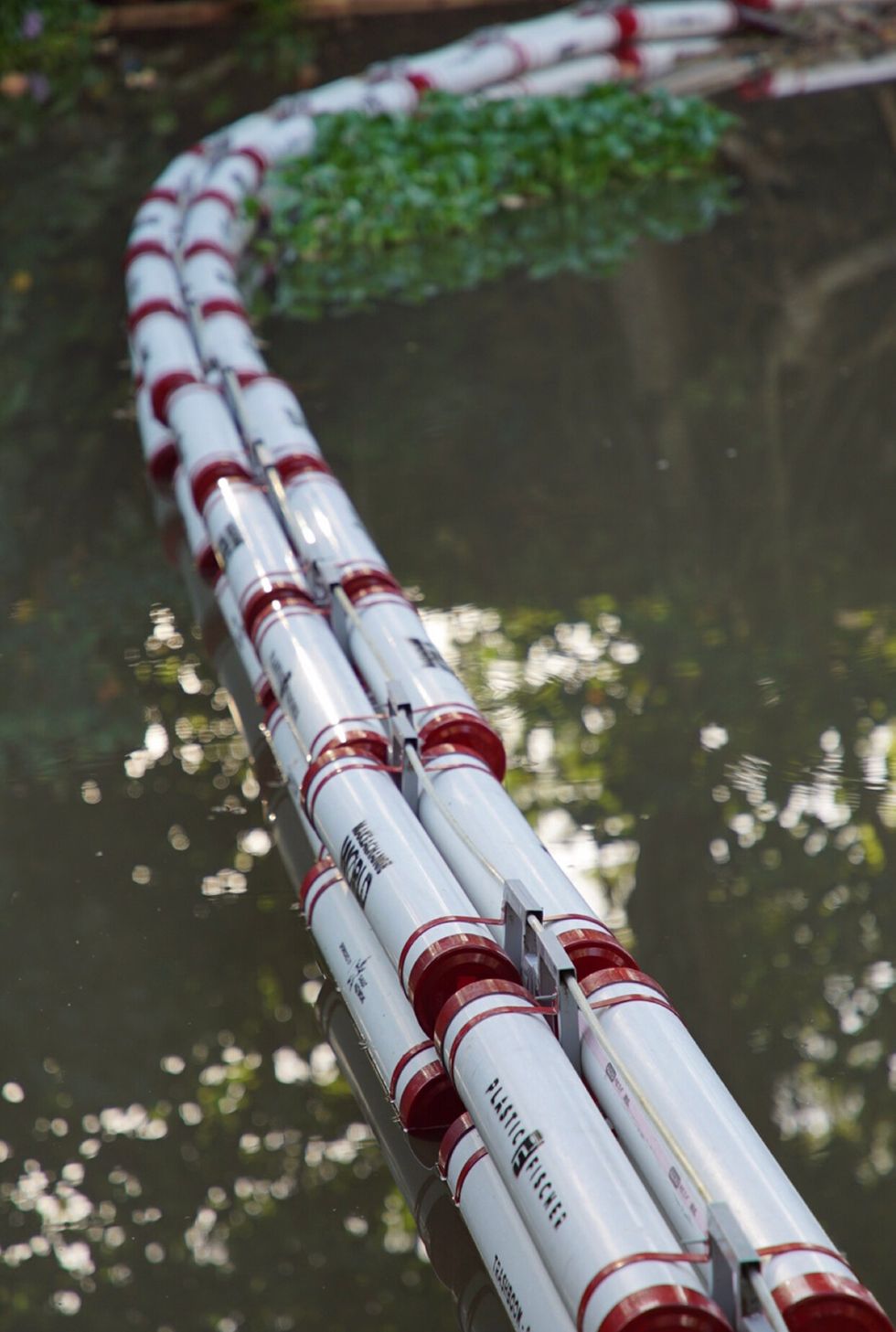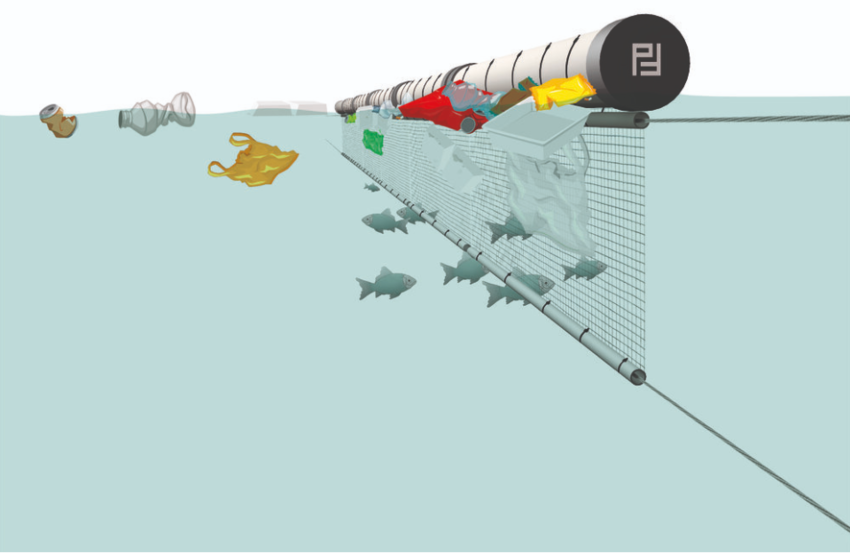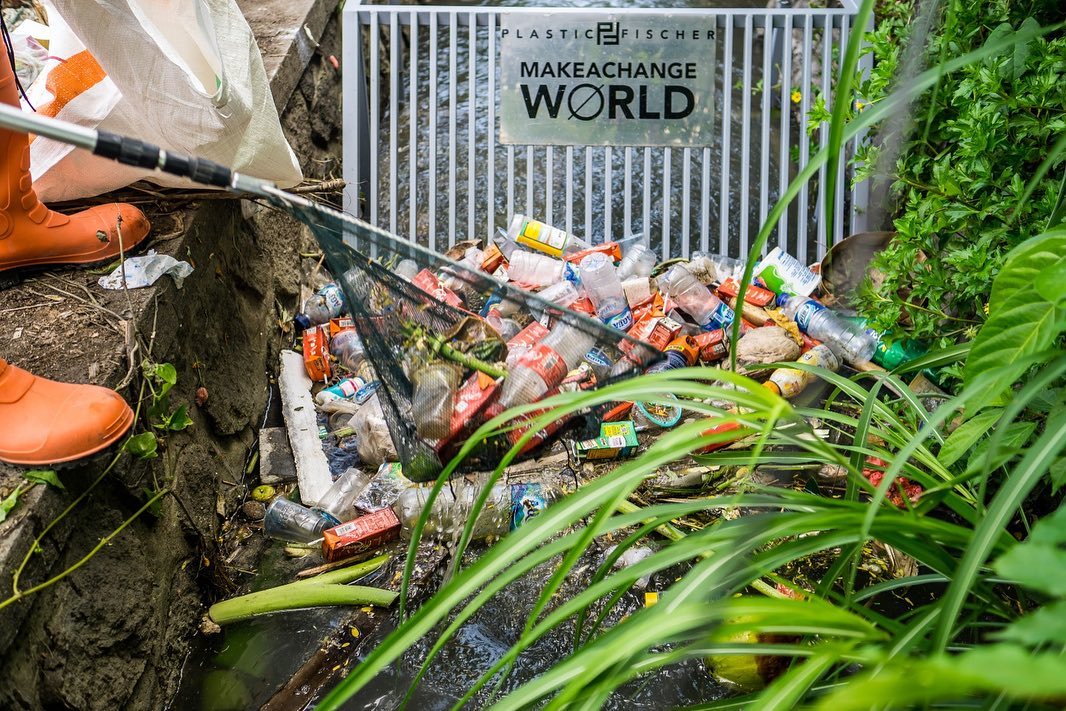
Make A Change World is installing 100 innovative “Trashbooms” around Bali to prevent plastics going out to sea in its latest project Sungai Watch.
Initiative uses technology and “Trashbooms” to trap plastic in rivers before it reaches the sea
Sungai Watch is the latest initiative from brothers Gary and Sam Bencheghib, whose Make a Change platform promotes ocean plastic clean-up. Make a Change has partnered with German tech start-up Plastic Fischer to test floating trash booms for rivers and smaller trash blocks for streams on Bali’s waterways. They hope the project will be implemented around the world.

“Imagine watching the cleanup of the world’s most polluted river in real time,”
You may remember brothers Gary and Sam Bencheghib who rowed down Indonesia’s most polluted river, the Citarum, on two kayaks made from plastic bottles. Two months later, they paddle-boarded their way along two of New York City’s most polluted waterways. They founded Make A Change World 10 years ago with the aim of cleaning up the beaches on their home island of Bali.
Fast-forward to 2020 and their latest project, Sungai Watch. The name comes from the Indonesian for river. It’s an online platform that uses GIS (Geographic Information System) mapping and artificial intelligence (AI) to see details in rivers of up to 10 centimetres.
“Imagine watching the cleanup of the world’s most polluted river in real time,” says Gary, who hopes it will become the go-to platform to clean rivers around the globe.
For now, his ambition is to install 100 trash barriers in Bali’s rivers to catch the plastic waste before it reaches the ocean.
Source: WorldEconomicForum

Trashbooms are built using cheap, local materials
The Trashbooms consist of PVC pipes as a floater and galvanised stainless steel mesh that functions as a catching net.
Make a Change has partnered with German tech start-up Plastic Fischer to test out floating trash booms for rivers and smaller trash blocks for streams on Bali’s waterways.
Each day, the waste that’s captured is collected and taken to a mobile sorting station, where it’s washed and weighed before being sent off for recycling.
Trashbooms are built using cheap, local materials – stainless steel and galvanised steel wire mesh, suspended from PVC pipes.
Karsten Hirsch, CEO of Plastic Fischer, says, “We are convinced that we need a cheap solution that you can build within a few days, that you can do it on your own and put it into every river in the world.”
Did you know: More than 90% of plastic is never recycled, and a staggering 8 million metric tons of plastic waste are dumped into the oceans annually.
Source: WorldEconomicForum


DONATE TO HELP US CLEAN OUR RIVERS
Their team in Bali is working on developing affordable and replicable solutions to prevent plastic pollution from entering our ocean. They are deploying various solutions to collect plastic directly in our waterways, where trash can still be stopped.